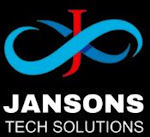Microsoft has been making headlines lately with its announcement of the new AI chip, named Athena, that it plans to integrate into its products. Athena is a custom-designed chip that will be used for AI and machine learning applications, and it's being developed in partnership with Nvidia, one of the leading players in the field of AI hardware.
The announcement of Athena comes at a time when companies across a wide range of industries are investing heavily in AI and machine learning. These technologies have the potential to transform everything from healthcare to transportation, and companies that are able to develop high-quality AI hardware are likely to be well-positioned to capitalize on these trends.
According to Microsoft, Athena will be able to process vast amounts of data at high speeds, allowing it to run complex AI algorithms in real-time. The chip is designed to be highly energy-efficient, which should make it an attractive option for use in a wide range of devices, including smartphones, laptops, and Internet of Things (IoT) devices.
One of the key advantages of Athena is its flexibility. Because it's a custom-designed chip, it can be optimized for specific use cases, allowing it to deliver better performance than off-the-shelf hardware. This is especially important in the field of AI, where different applications have vastly different processing requirements.
The partnership with Nvidia is also significant. Nvidia is one of the leading players in the AI hardware space, and its products are widely used in a variety of industries. By partnering with Nvidia, Microsoft is able to tap into Nvidia's expertise in developing high-performance AI hardware, while also leveraging the existing ecosystem of software and tools that have been built around Nvidia's products.
Overall, the announcement of Athena is an exciting development for Microsoft and for the field of AI and machine learning. The new chip has the potential to deliver significant performance gains and energy savings, which could help drive the adoption of AI in a variety of industries. It will be interesting to see how Microsoft integrates Athena into its products in the coming years, and how the chip will be received by developers and users alike.
The announcement of Athena also highlights the growing importance of hardware in the AI space. While software has traditionally been the focus of the tech industry, the rise of AI and machine learning is driving increased demand for specialized hardware that can support these applications. Companies that are able to develop high-quality AI hardware are likely to be at a significant advantage in this space.
It's worth noting that Microsoft is not the only company investing in AI hardware. Other tech giants like Google, Apple, and Amazon are also developing their own custom-designed chips for AI and machine learning applications. This competition is likely to drive continued innovation in the space, which should ultimately benefit consumers and businesses alike.
In conclusion, the announcement of Athena is a significant development for Microsoft and for the field of AI and machine learning. The new chip has the potential to deliver significant performance gains, energy savings, and improved privacy and security. It also highlights the growing importance of hardware in the AI space, and the competition that is driving continued innovation in this area. It will be interesting to see how Athena is received by developers and users, and how it helps to shape the future of AI and machine learning.




Your comments are greatly valued, and we appreciate your participation.